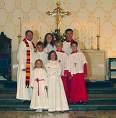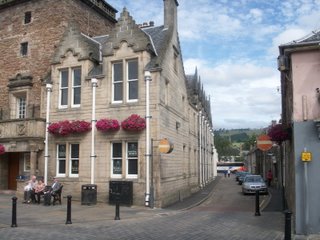Congregational Union
There was an attempt by Cromwell to grow Congregationalism in Scotland over the 8 years of Occupation. But it was not until late 18th century that the churches grew, under the labours of the Haldane brothers. When the brothers took on Baptist principles from 1808 Baptists received great benefit from the work of the Haldanes as well.
James and Robert Haldane were committed to itinerant ministry in Scotland from 1797. They were descendants of the Gleneagles family. Robert was in the navy and then spent some time studying from home in Airthrey Stirling. James was involved in the East India company. After reading about the Baptist Mission in India Robert was inspired to use his time and resources to missionary service. James had been successful with John Campbell in setting up Sunday Schools in the west.
In 1797 after James discovered his preaching ability he embarked on a exhibition to the North of Scotland and Orkney.
During the next year they sold Airthrey for £46,000 and decided to devote their time to spread the gospel. They did not hesitate to criticise any defective teaching from parish ministers. This provoked the church and the assembly to pass an act in 1799 restricting the preaching to ministers.
Having trained 200 lay workers and set up churches the running costs amounted to £70,000 after 11 years. At one point the Haldanes as supporters of the British and Foreign Bible Society (now known as The Bible Society of England and Wales) stopped supporting it because they were issuing bibles with the Apocrypha in it.
Greville Ewing (1767-1841) born and educated in Edinburgh after education at Edinburgh university began as Assistant Minister in lady Glenorchy Chapel (Church of Scotland but not under its jurisdiction). Like the Haldanes he was moved to mission work. In 1802 the Haldanes and Ewing split under a differing opinion as to apostolic leadership. Whilst the Haldanes withdrew support for the Bible Society regarding its unconstitutional printing of the Apocrypha, Ewing worked behind the scenes to obtain the society's policy reversal.
On 1 of April 2000 the Scottish Congregational Union joined the United Reformed Church making a UK denomination.
There was an attempt by Cromwell to grow Congregationalism in Scotland over the 8 years of Occupation. But it was not until late 18th century that the churches grew, under the labours of the Haldane brothers. When the brothers took on Baptist principles from 1808 Baptists received great benefit from the work of the Haldanes as well.
James and Robert Haldane were committed to itinerant ministry in Scotland from 1797. They were descendants of the Gleneagles family. Robert was in the navy and then spent some time studying from home in Airthrey Stirling. James was involved in the East India company. After reading about the Baptist Mission in India Robert was inspired to use his time and resources to missionary service. James had been successful with John Campbell in setting up Sunday Schools in the west.
In 1797 after James discovered his preaching ability he embarked on a exhibition to the North of Scotland and Orkney.
During the next year they sold Airthrey for £46,000 and decided to devote their time to spread the gospel. They did not hesitate to criticise any defective teaching from parish ministers. This provoked the church and the assembly to pass an act in 1799 restricting the preaching to ministers.
Having trained 200 lay workers and set up churches the running costs amounted to £70,000 after 11 years. At one point the Haldanes as supporters of the British and Foreign Bible Society (now known as The Bible Society of England and Wales) stopped supporting it because they were issuing bibles with the Apocrypha in it.
Greville Ewing (1767-1841) born and educated in Edinburgh after education at Edinburgh university began as Assistant Minister in lady Glenorchy Chapel (Church of Scotland but not under its jurisdiction). Like the Haldanes he was moved to mission work. In 1802 the Haldanes and Ewing split under a differing opinion as to apostolic leadership. Whilst the Haldanes withdrew support for the Bible Society regarding its unconstitutional printing of the Apocrypha, Ewing worked behind the scenes to obtain the society's policy reversal.
On 1 of April 2000 the Scottish Congregational Union joined the United Reformed Church making a UK denomination.











